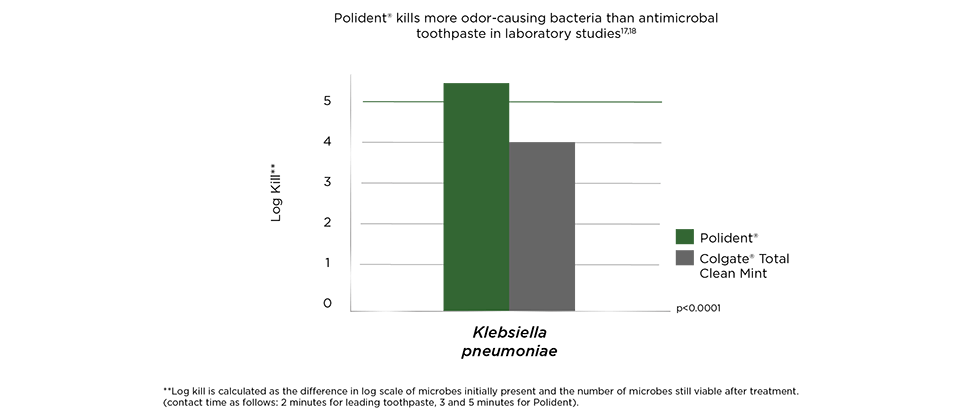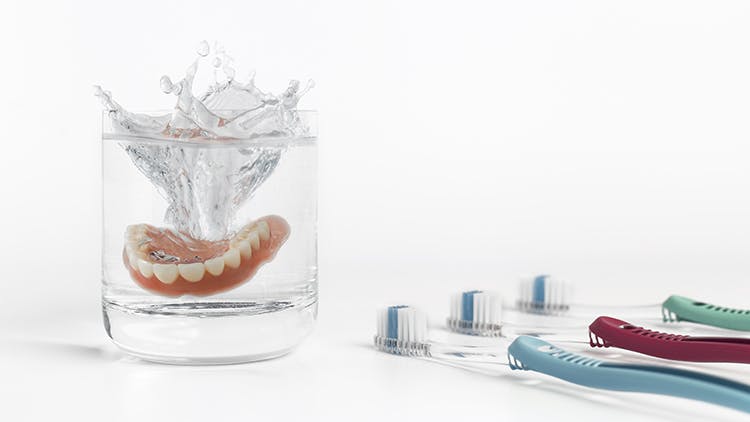Denture Management

Maintaining the Performance of Dentures
There are numerous individual factors influencing how patients maintain their dentures. These could be physical, clinical or behavioral, including:
- Oral anatomy – Restrictions in oral anatomy can limit denture retention and stability; such as gradual bone resorption, or available surface area relating to small lower jaw, flat absorbed ridges, or prominent tori1,2
- Xerostomia (dry mouth) – Disrupting normal denture retention due to reduced saliva1,3
- Immediate full dentures – where fit may change over time as bone resorption occurs after tooth extraction4
- Preservation of natural teeth – where excessive functional forces may cause additional tooth mobility or loss5
- Patient psychology – how patients adapt to their denture4
- Denture hygiene – where the cleaning method or frequency results in poor denture hygiene and risks oral health6-8
- Denture stomatitis* – caused by long-term inadequate denture cleaning or wearing dentures overnight9
*Polident not indicated for treatment of stomatitis
Denture cleansers can help patients maintain denture performance and hygiene

Denture cleansers – helping maintain dentures’ hygienic performance
When patients present with individual medical, physical or psychological factors that affect dentures’ hygienic performance, denture cleansers can help improve denture hygiene.
Patients with poor denture hygiene achieved more effective cleaning when daily brushing was combined with a denture cleanser:
- Significantly larger reduction in plaque12
- Significantly larger reduction in odor causing bacteria12
Denture cleansers can kill significantly more of the bacteria associated with denture stomatitis* compared with other cleaning agents, such as antimicrobial toothpaste.10,11
*Polident not indicated for treatment of stomatitis.
**Log kill is calculated as the difference in log scale of pathogens initially present and the number of pathogens still viable after treatment.
ACP guidelines
“Dentures should be cleaned daily by soaking and brushing with an effective, nonabrasive denture cleanser.”
Continuing Denture Care

In addition to daily denture care at home, patients need regular professional contact to ensure that their oral health is maintained.

3-monthly recalls during the first year of denture use.13

6–12-monthly check-ups to detect the presence of early caries or periodontal diseases.14
